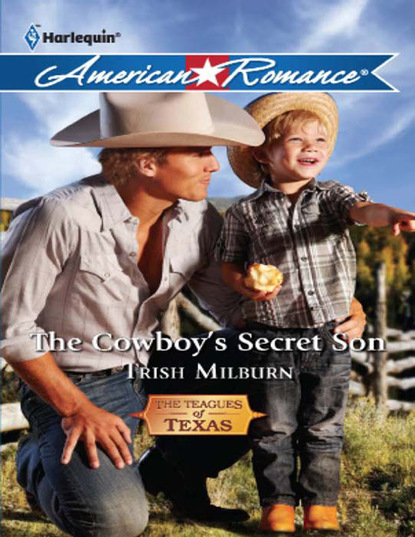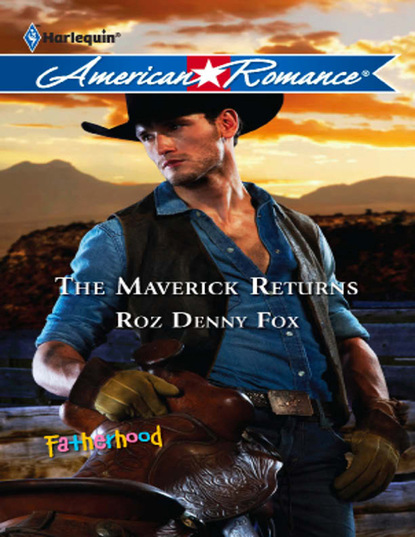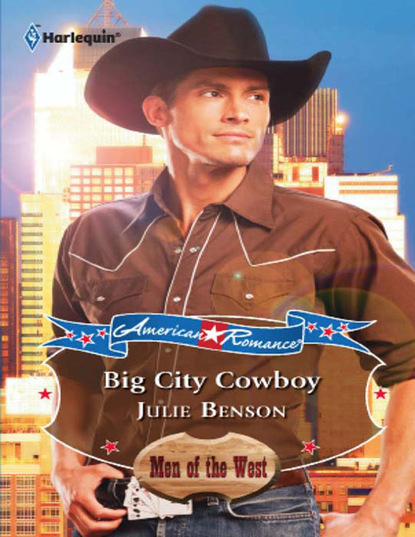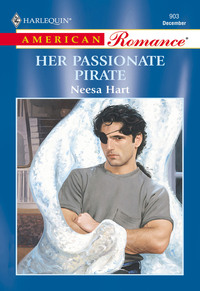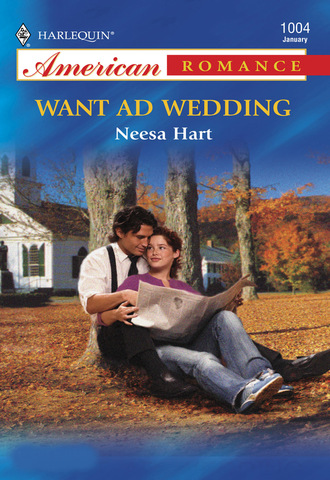
Полная версия
Want Ad Wedding
“Stringing,” he stated.
“Sort of. Stringers use actual material. We just made up ads. You know—stuff like, ‘for the secrets of the ancients, send one dollar to the following P.O. Box.”’
Sam nodded. “Most college papers have those.”
“And when people particularly annoyed us, we wrote ads about them.”
“Personal ads,” he guessed.
“Yes. It helped blow off steam.” She frowned as she recalled her mood from Friday afternoon. “After the editorial meeting—I was so angry at you.”
“You thought I shot down your article concept.”
“You did—”
“I didn’t. I just wasn’t finished with the piece we were already discussing. You have a habit of not letting me finish.”
Molly’s head started to ache. The conversation seemed almost surreal. For six weeks, she had wanted to strangle this man. He’d walked into the Payne Sentinel and taken over with the high-handedness of an Eastern potentate. While everyone knew the Sentinel was struggling financially, no one had suspected the extent of the trouble until Carl Morgan, the Sentinel’s owner, brought in Sam Reed to bail them out. He was part of Reed Enterprises’ vast publishing machine, and he had a reputation for taking small-market publications and folding them into large distribution conglomerates.
Unpredictable by reputation, Sam was the illegitimate son of publishing legend Edward Reed. Before his death, the old man had controlled a staggering fifteen percent of the daily periodicals in the United States. Sam had entered the Reed empire at age nine when, in a spectacularly publicized incident, his mother had announced to a press hungry for Edward Reed’s humiliation, that Sam was his child. Her emotional statement had laid out details of a month-long affair. She’d never told Edward of the child, she’d claimed, because she feared his retribution. Economic hardship and a guilty conscience had finally driven her to reveal the truth.
With his notorious élan, Edward had called her bluff. He’d acknowledged Sam as his son and taken him to live in the Reed household. The press, deprived of a longed-for spectacle, had quickly lost interest. Sam, and Edward’s legitimate son, Ben Reed, had inherited Reed Publishing when Edward died fifteen years later. Together, the two men had built the company from a feared bully into an admired success. Ben Reed, sources said, was the methodical one on the team. He did the planning while his brother was the maverick who took the risks and turned would-be failures into success stories.
And Molly didn’t like his vision for the Sentinel.
They’d clashed immediately. He was slowly doing away with the paper’s more serious content and expanding its community focus. Soon, she feared, the Sentinel would be nothing more than a coupon clipper.
She’d worked at the Sentinel since she’d been old enough for her first paper route. Nobody knew the paper, or its subscribers, she figured, as well as she did. But Sam had turned down every suggestion she’d made. He’d locked himself away in this office, making it clear to the staff that they could do his bidding or quit. Editorial meetings had turned into sparring matches, where Molly stood up to him and he shot her down.
In the six weeks since Carl had introduced him as the man who was going to save the Sentinel, Molly had yet to see him show a human side. Until now. When he should be furious. When she’d finally given him the right to be furious. She couldn’t wait to find out what her sisters would say about this.
“Mr. Reed—” she began.
He held up a hand. It wasn’t the manicured, soft-looking hand of an idle businessman, she noted with some fascination. He had calluses on his palm, and new-looking scrapes that skimmed the edge of his blunt fingers. How was it that she’d never noticed his hands before? “Like now,” he said. “I’m not finished telling you why I cut you off about that story.”
Molly frowned. He shook his head. She swore the sparkle was back in his eyes, turning the steel color a softer shade of gray. “I bug the hell out of you,” he said, “don’t I?”
“Yes.”
The flat response made him laugh. The rich laugh surprised her. It came easily and sounded well-used. Where, she wondered, was the Sam Reed she’d been sparring with in editorial meetings? He steepled his hands beneath his chin and gave her a dry look. “So you made me the victim of a personal ad to your friend?”
Molly nodded. “JoAnna called on Friday afternoon. She usually does. It’s a ritual we’ve had since we graduated.” If a person could die from embarrassment, Molly figured, she would become an obituary at any moment. In hindsight, it all seemed extremely juvenile. Even trying to explain it only seemed to make it worse, but her sense of honor demanded that she take the licks. “I was angry. I vented. JoAnna was having a lousy day, too. She reminded me of the game. I wrote the ad and e-mailed it to her. I thought it would make her laugh. I forgot to clear it from my screen before I left for the night.”
“And the stringer found it and diligently put it into copy by the Saturday-morning deadline for today’s personals,” he guessed.
“Yes.” Molly rubbed her palms on the rough fabric of her jeans. “I didn’t know until this morning.”
“Imagine my surprise.”
There it was again, that slight thread of humor in his tone. Molly grimaced. “I was mortified. I’m sure it was worse for you. I—it was childish and irresponsible. There’s nothing I could say that would adequately apologize.”
He picked up the unopened envelope that held her resignation. “So you came in prepared to quit?”
“It seemed like the most honorable thing to do.”
He nodded, his expression thoughtful. With a quick twist of his wrist, he tore the envelope in two and tossed it into his trash can. “Think of something else.”
Molly stared at him. “I beg your pardon?”
“Think of something else. You’re the best journalist this paper has. You should probably be working in a bigger market—”
“I don’t want to work in a bigger market.”
“Let me finish, Molly,” he said, and damned if his lips didn’t twitch into a half smile. “You should probably be working in a larger market, but you decided to stay here. Why?”
“It’s my home.” She shrugged. “My family lives here. I’ve worked for the Sentinel since I was eleven years old.”
“Paper route?”
“Yes.”
He nodded. “First job?”
“If you don’t count weeding Mrs. Ellerby’s vegetable garden.”
“That was seasonal work. It’s different.”
Molly had no response to that, so she simply watched him. The collar of his white shirt lay in stark contrast to the bronzed column of his throat. Was it her imagination, or was his tan deeper this morning than it had been on Friday? She simply couldn’t picture him doing anything as mundane or sedentary as strolling along the beach at Martha’s Vineyard. She thought about the scrape she’d seen on his fingers and could easily imagine him, shirtless, laboring under the afternoon sun. Maybe on a sailboat, though even that seemed too much like recreation. He leaned back in his chair and placed his hands behind his head. “My first job was a paper route. I liked the way the papers smelled when I picked them up.”
The admission surprised her, and yet, it didn’t. Edward Reed’s son probably wouldn’t have needed a paper route for spending money. The renowned media mogul could well afford to give his son a generous allowance. Though few people in the industry were unaware that Sam was Reed’s illegitimate son, Reed had made his acceptance of the child abundantly clear. But, the same thing that told her he didn’t spend weekends at the beach said he hadn’t spent his childhood living on his father’s money. “Did you have to roll and band them for delivery when you picked them up, or did they come that way?”
“I did it,” he said with a slight nod. “Kids today have it easy. They get those plastic bags.”
“Rolling’s half the skill,” she concurred. “If you don’t tuck the edges, you can’t toss the paper right.”
“Comes unwrapped in midair.”
“Plus you get paper cuts when you pull ’em from the bag.”
He smiled. It was dazzling. Molly couldn’t ever recall seeing him smile so naturally. This was a smile straight from a remembered pleasure. Her heart skipped a beat. His eyes crinkled at the corners when he smiled. The observation surprised her. The slight lines suggested that his smile, like his laugh, was something he used often. “The day I finally mastered the doormat toss onto old man Greely’s porch—” he shrugged “—I felt like Nolan Ryan pitching a no hitter.” The faraway look left his eyes as he met her gaze again. “He had shrubs. Boxwoods. They blocked the sidewalk.”
Molly nodded. “I had a house like that. You had to float the paper over the shrubs so it landed on the mat.”
“Um. And Greely had a covered porch. So the paper had to go between the roof of the porch and the boxwoods and land on the mat—”
They said in unison, “Without hitting the door.”
Molly laughed. “I’m impressed. I was pretty good, but not that good.”
“I practiced for weeks.”
“I hope he tipped well.”
“I don’t think I ever got a tip out of the man. But he didn’t yell at me for hitting his door either. And when the paper I worked for threatened to take away my route and consolidate it into truck delivery, he went to the circulation director and saved my job. I never knew what he told that guy, but I kept the route until I graduated from high school.” He shook his head. “The day I graduated, Fred Greely sent me a check for a hundred dollars.”
Molly found her first smile of the morning. “No wonder you love the newspaper business.”
“Just like you?” he asked softly.
She hesitated. “Yes. Just like me.”
“I thought so. So find something else. You can’t quit.”
“I’m not sure what you mean,” she said carefully.
Sam pushed the paper aside and folded his hands on his desk. “May I make a suggestion?”
“Since when do you ask me if you can make a suggestion?” she quipped.
Another slight smile. The dent—dare she call it a dimple—in his left cheek deepened when he smiled. And that dimple, that infuriatingly devilish dimple, did something to his face that made her stop breathing.
Oh, dear Lord, she thought, as she felt the flutter in the pit of her stomach, and recognized the way her lungs constricted. It can’t be. It can’t and must not be. But even as she struggled for breath and pressed a hand to her belly, she knew the signs. They were horrifying and impossible evidence that she found the man attractive. Her sisters had been telling her for weeks that the animosity she felt toward him was one step away from passion. She’d denied it. Vehemently. Too vehemently. With the sun glinting on his dark hair, and his damned dimple making her body temperature notch up, she had to fight the urge to bury her face in her hands.
Not again, she told herself fiercely. And for God’s sake not now. For years, she’d known that she had a chronic habit of falling for unsuitable men. With the same reckless abandon she lived life, she’d tumbled headfirst into relationships. Her sisters had been warning her for years. If they found out she’d fallen for Sam Reed, she’d never hear the end of it. Blissfully, Sam seemed unaware of her momentary lapse into insanity. He chuckled softly at her quip, and the sound made her stomach flip-flop. “Oh, no,” Molly muttered beneath her breath.
“What?”
“Nothing,” she assured him, fiercely demanding that her nerves quiet down. “You were saying?” she asked with a feeling of dread.
He looked at her curiously but continued, “I was saying that I’d like to offer you a way to make reparations for this—indiscretion.”
“What do you want?” she asked warily. She had a sinking feeling that whatever it was, it would be far worse than losing her job.
“I want you to have dinner with me.”
Chapter Two
She was sputtering. There wasn’t any other way to describe it, he thought, fascinated. Sam Reed was fairly certain he’d never seen a woman sputter. He watched her closely as she struggled for breath. “Dinner? With you? You mean, like a date?”
He was screwing this up, he thought wearily. No big surprise there. How he managed to succeed in business and fail so spectacularly at anything requiring tact, he hadn’t a clue. He’d obviously inherited the trait from his father. “Like a date,” he affirmed carefully, wondering why the word seemed so old-fashioned and quaint. He frequently took women to social events. He’d had his share of lovers. But he hadn’t “dated” since high school. “Don’t you have them?” She drew her eyebrows together in a sharp frown. Was baffled or just annoyed.
“Excuse me?”
He didn’t think he was imagining the way the spray of freckles on her nose had blended with the heightening color in her face. From the day he’d met her, he’d found Molly Flynn’s freckles fascinating. They formed a steady trail, which disappeared beneath the collar of her sweatshirt. The thought of following that line of freckles to its end made his mouth water—that and her maple-leaf–red hair and her eyes the color of summer clover. Nothing about Molly Flynn was bland. She had vibrancy and life—something Sam had begun to fear he himself was missing.
Perhaps that explained why he’d caught himself imagining her lingerie. Sam had never found speculating on women’s lingerie to be particularly time worthy, but this was different. He had an unshakeable feeling that underneath her ubiquitous jeans and sweatshirts were laces and satins in a range of colors and styles that would knock his socks off.
He forced himself to concentrate on getting her to agree to a date. Plenty of time later to contemplate her lingerie. He wasn’t used to explaining himself, and he didn’t do it well. If the look of absolute confusion on her face was any indication, he was definitely screwing this up. “Maybe I should elaborate,” he suggested, more for his own benefit than hers.
“Maybe.” She fidgeted a little in the chair. He noted that about her, too. She never sat still. He, on the other hand, could sit absolutely still for hours. But Molly was perpetual motion. It should have annoyed him. He still hadn’t figured out why it didn’t. The only thing he knew for sure was that he wanted her. He’d started wanting her when she’d challenged him in their first editorial meeting. He had kept on wanting her right through their near shouting match on Friday afternoon. When he’d awakened to his sister’s phone call about the personal ad in the morning’s Payne Sentinel, his mind had immediately recognized the opportunity. If Molly would only cooperate.
“When Carl hired me to put the Sentinel back in the black, I almost turned him down. Reed Enterprises is negotiating several other ventures right now, and my brother, Ben, had asked me to manage a project in London.”
Molly nodded. “Reed Enterprises is working a merger with the Daily. I read about it in the trades.”
One of the sexiest things about Molly Flynn, he thought with satisfaction, was her brain. Sam had always preferred sharp-witted lovers, and Molly’s brain was razor-sharp. “But Carl’s an old friend. He helped me through college. I owe him.”
“He respects you. He trusts you.”
“He loves this paper,” Sam assured her. “And he loves the people who work here.”
Molly studied him for a moment. “You’re trying to change it. Carl never wanted the Sentinel to become a community newsletter. He always wanted a serious journalistic paper geared for a small-town readership.”
“And he can have that. But without a few changes, the Sentinel can’t turn a profit. The market has changed. Carl hasn’t changed with it.”
“I still think the transportation hub piece is a good idea,” she said. “It’s relevant. It’s local. And it’s got bite.”
“Would it surprise you to learn that I think it’s a good idea, too?”
She frowned. “But you said—”
He shook his head with a slight laugh. “Because you didn’t let me finish.” At her sharp glare, he suppressed a grin. He was seriously pissing her off, he suspected, but she was still too embarrassed to storm out on him. At least he had that in his favor. “We’re going to have to work on that.”
“Before or after dinner?” she asked dryly.
“Before.” He had other plans for after. Sam leaned back in his chair and felt himself relax. She was still listening. That had to be a good sign. “Here’s the thing,” he began. In business and in life, he’d always found it best to lay these matters out in a methodical fashion. Some women couldn’t handle that, but Molly was brilliant and capable. Though she had a reckless streak that made her act impulsively, he was fairly certain she’d respond to logic. “This ad—it has raised questions in my family.”
“I’ll bet.”
Her expression told him nothing. He sensed Molly was deeply embarrassed, but she was masking it well, facing the consequences with a courage he admired. “My brother, Ben, got married last year. His wife is—unconventional.”
He detected a slight smile at the corners of her mouth. “So I’ve heard.”
He didn’t doubt it. His brother’s engagement and marriage had been widely publicized. Sam shrugged. “I like Amy. A lot, actually. And now that my family knows her, they adore her as well. But the relationship has been a little tumultuous.”
“And now that your brother has tied the knot, everyone is looking for a new target.”
He thought of his aunt’s phone call that morning and grimaced. She was the latest to join the campaign with his stepmother and half sister. “You could say that.”
“And you’re it.”
He nodded. “Both my stepmother and sister have been scheming for years to get me down the aisle. My sister’s hobby is planning weddings—hers, and other people’s. Now she’s got my aunt and my sister-in-law involved. At least Ben is smart enough to leave me alone, but the women are making me feel like George Custer at the Battle of Little Big Horn.”
Molly chuckled, and it heightened the gold flecks in her green eyes. Sam had always liked Molly’s eyes. They were expressive and revealing. He saw passion and intelligence in them—a combination he found irresistibly sexy. “I know the feeling,” she assured him. “I’ve got four older sisters.”
“My last relationship came to a spectacular end.” Though her gaze had turned curious, he forged ahead. Time enough to explain Pamela later. “I was actually looking forward to going to London for Ben.”
“And then the Payne Sentinel got in your way.”
“Hmm,” he concurred. “And in case you haven’t noticed, I’m having difficulty getting people here to trust me.”
“I think it’s your car,” she said, her tone serious.
“My car?”
“You drive a sports car. The only people in Payne who drive sports cars are insurance salesmen and morticians. You figure it out.”
He stifled a laugh. He couldn’t remember the last time a woman beyond his immediate family had made him feel like laughing. “Minivans and SUVs?”
“Or four-door sedans. Payne is that kind of place.”
“You drive a ’72 Beetle.” It was sunset orange and had a hell of an exhaust problem. He’d have to convince her to let him take a look at that.
“I’m the town rebel.” She drummed her fingers on the arm of the chair. “There’s only room for one, you know.”
“If I can get the staff of the Sentinel to follow my lead, I can save this paper,” he said more seriously. “But frankly, you’ve got everyone thinking they have to choose sides between you and me. Right now, they’re walking the fence because they’re afraid for their jobs.” He shook his head. “But if you force them to choose, they’ll follow you.” He leveled a hard look at her. “Even if it’s right off a cliff. If you want the Sentinel to survive, you will have to accept some changes.”
“Just because I don’t agree with every decision you make doesn’t mean I’m not willing to accept change.”
“Then prove it to me.” He leaned forward and planted his hands on the desk. “Convince me.”
“Meaning date you?”
What, Sam wondered, slightly annoyed, was so damned unbelievable about the concept of having dinner with him. He had it on relatively good authority that he was considered highly eligible.
Ben would’ve reminded him that wooing women was nothing like negotiating contracts. It was five times harder, took ten times longer, and required twenty times the effort. Sam carefully chose his next words. “I’m talking about a business arrangement,” he said softly. “A contract. Everyone in this town trusts you. If they perceive that you trust me, they will as well. This ad—” He thumped the paper with his knuckles. “People are asking questions. I want to give them answers that satisfy their curiosity without appearing to look like I have lost control.”
“But I didn’t mean—”
He headed off her argument. He’d learned in the last six weeks that letting Molly reach full steam was never a good idea. “And the people in Payne aren’t the only issue. You can imagine how my sister reacted. The fact that a woman finally got the best of me has her positively ecstatic.”
Molly winced. “Sorry.”
“And it’s going to be embarrassing if I have to explain this by saying that you blew up at me at a meeting.” He looked at her narrowly. “I would think you’d find it pretty humiliating yourself.”
“I do,” she insisted.
“But if people believe we are romantically involved, they’ll brush this off as a lover’s quarrel. We’ll take a couple of jabs about it. Then the whole thing’ll just blow over. You’ll be lauded for having gotten the better of me. And if my family believes that I’ve finally found a woman who will put up with me, they’ll—” He stopped. He wasn’t ready to elaborate yet. It was more information than he wanted Molly to have. “There will be no embarrassing explanations nor apologies.”
“No one is going to believe that you and I are romantically involved. Not after what they’ve seen for the last six weeks.”
He shrugged. “People see what they want to see. A few public appearances, a couple of social engagements, and everyone will be saying they knew it all along.”
“So you want me to pretend I’m involved with you?”
“No,” he said carefully. “There’s no pretense about it. I don’t play games.”
She frowned at him. “You’ve lost me.”
Sam took a deep breath. The crucial part of any negotiation was where both parties tipped their hands. He was about to show Molly his cards, and he was gambling she’d do the same. “I don’t want you to pretend to be involved, Molly,” he said quietly. “I want you to get involved.”
Her eyes widened. She stared at him for a full fifteen seconds. Sam was fairly certain he heard his watch ticking. He’d negotiated billion-dollar deals where he’d been far less tense. Somewhere in the back of his mind was the thought that it shouldn’t be so damned hard to ask the woman for a date. But then, he’d never known a woman quite like Molly. Her lips pursed slightly as she stared at him. Finally, she muttered, “Oh.”
Not the most enthusiastic response he’d ever received, but manageable. She hadn’t said no. That’s what counted. “I’ll get to know you,” he explained slowly. “You’ll get to know me. And I’d like exclusive rights to your social life for a while. In exchange, I’ll give you exclusive rights to mine.” He was vaguely aware of how stuffy he sounded. Smooth, Reed. Why didn’t he just go ahead and hand her a contract to sign.
“That’s got to be the most romantic offer I’ve ever had,” Molly quipped.
At least she hadn’t stormed out. He considered that a good sign. Just as he’d thought, Molly Flynn was different from other women he’d known. “What have you got to lose?” he prompted.
She was drumming her fingers on her leg again, a quick, agitated rhythm that mirrored the pace of the thoughts he saw moving across her expressive face. “How long is this arrangement going to last?”
Sam realized that he’d been holding his breath when her question tipped him that she was seriously considering his offer. Years of business negotiations told him he was a few well-chosen words from closing the deal. “As long as we can stand each other,” he assured her.


